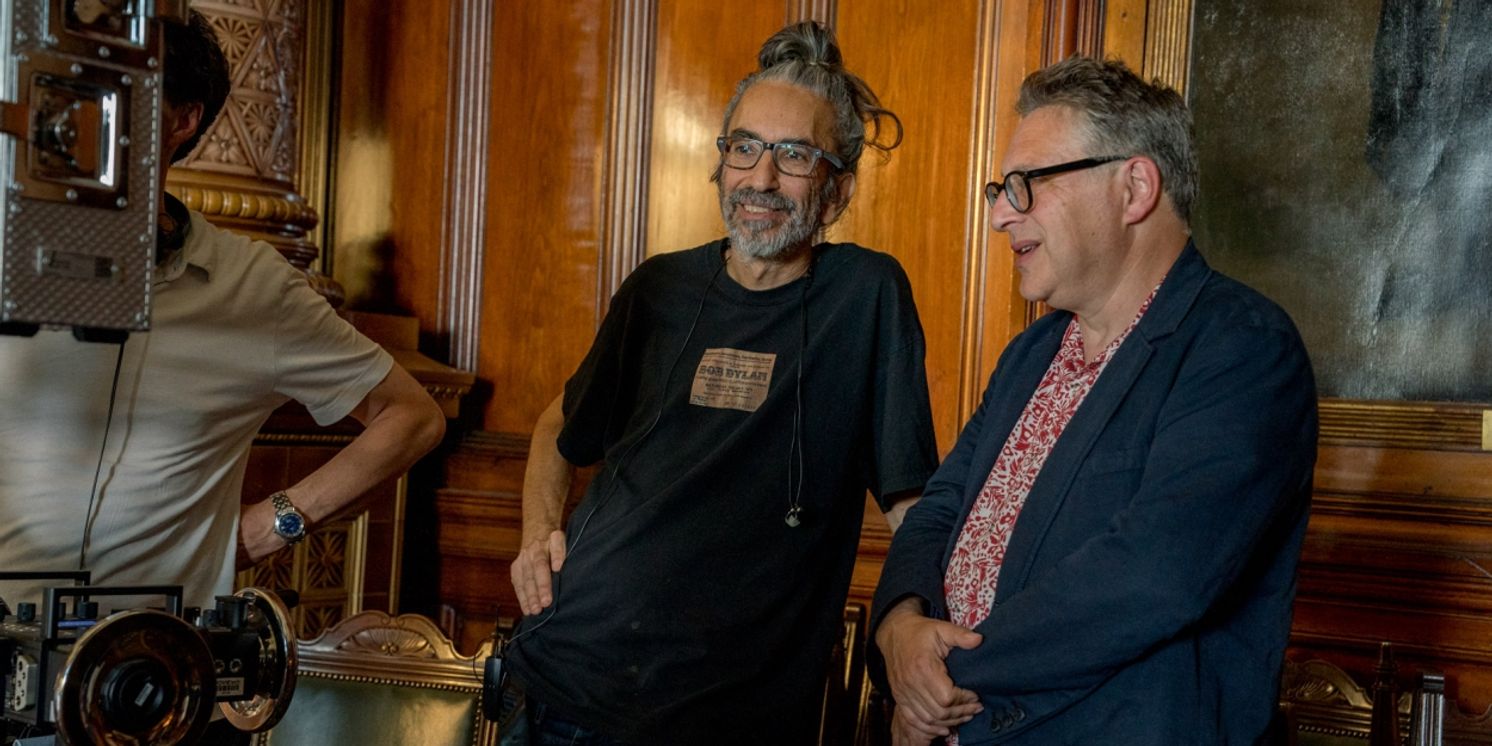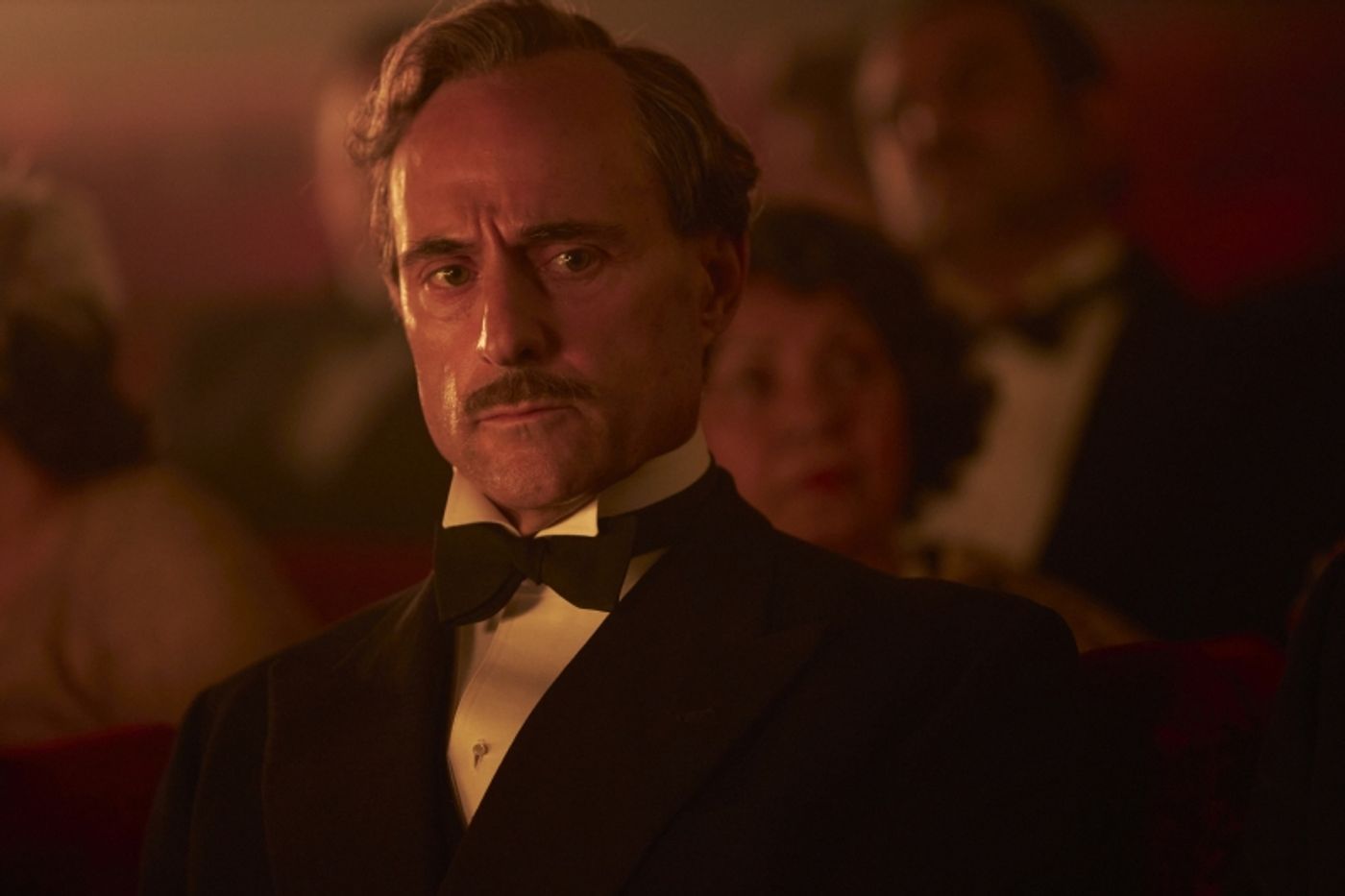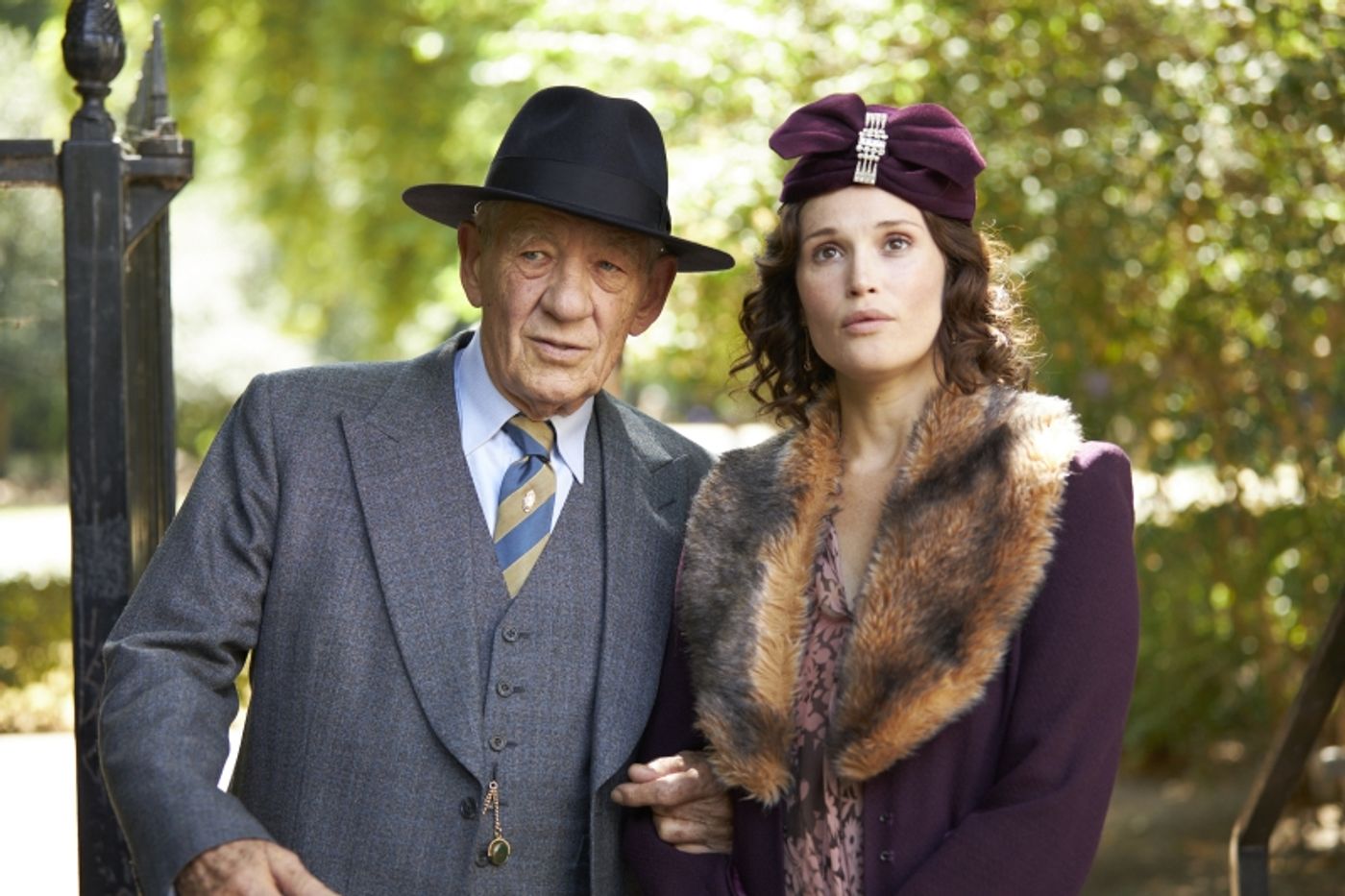Interview: 'It's the Hustle That's the Biggest Training': Director Anand Tucker on THE CRITIC
The Critic is in cinemas from 13 September

The Critic, a film written by Patrick Marber and directed by Anand Tucker, comes to cinemas in the UK on September 13. Audiences are introduced to a formidable gay theatre critic of the 1930s, Jimmy Erskine (Ian McKellen) and watch as he corrupts a young actress, Nina Land (Gemma Arterton), leading to danger and blackmail.
BroadwayWorld spoke with the director of The Critic, Anand Tucker. We discussed how he first got started in the world of cinema, what it is like to be adapting a work like The Critic and his thoughts on critics in the modern age versus the 1930s.
How did you first get into the world of directing?
It's because I was shit at everything else! Basically, I wanted to be a pop star and I was a failed pop star. Never even made it to getting any kind of record deal. Tried being an actor. I was a terrible actor, absolutely appalling.
I've always loved movies, horror movies, like Halloween, John Carpenter's great film. The thing about movies was the best ones just took you somewhere else. That's such a common experience, and that's what makes the movies wonderful! And so when I was casting about in my early 20s, for what the hell to do with my life, I saw Taxi Driver by the great Martin Scorsese, and thought, “Oh, my God!” I realised that there was a presence, an intellect - someone had made this thing that took you somewhere. And in my egoism, I thought, “Yeah, I can do that!” So I tried. I've been trying for the last however many years to do that.
And what made you want to be a part of The Critic?
Fate threw The Critic at me. It was literally pure luck. I play football on a Friday morning with Patrick [Marber], who I've known for twenty years, Tony Quinn, who wrote the book, and Mark Strong, who's in the film. And Patrick asked me if I'd have a read of the script. Patrick and Jolyon Symonds, his producing partner, offered me the chance to make the movie, which obviously I leapt at!
What is it like directing a film? What does that role entail?
That's a hard question! The thing about being a film director is it's vastly overrated and you really don't have to be good at anything. The main skill you have to have is to be good at casting. And that's not just actors, but also your heads of department. The whole shebang, if you like. Because really, you're trying to persuade a bunch of other people who are much more talented than you and actually have skills to do what you want them to do. So it's a cult-like seduction that you engage in. In all seriousness, the thing about directing films is it's good to have some basic knowledge of all the departments.

The best directors that I admire, they'll have a central idea about what the work needs to be, and they're able to communicate that simple idea very clearly to a lot of people - however many people are involved in the making of a film. And everyone has to be seeing the same thing. Otherwise, it doesn't work. And that's hard enough if it's just two people! So that's the job, really.
Can you take us a bit into some of those early steps when you first get the script?
So when you have a draft that's come in or a script you're given, the first thing you're thinking is if you like it and you want to do it, if it speaks to you in some way. In my head, I take a really long time when I first read something, because as I'm reading it, I'm seeing it. And then the process becomes you reread and reread, every time you read it, I'm spooling it in my head.
Scripts are words that fill your head, a movie is a series of images cut together - one image cut against another, if it's the right two images, can do the work of a whole page of dialogue. So in a way, you've got to make the script work to fit the film that I have in my head. Someone else would do it a different way. And so hopefully, you can persuade the writer to change the script to how you want, or, if you happen to be the writer, you get to do it yourself, which is good.
So then you get your blueprint and you have to sell it because ain't no point having a great script if no one's ever going to see it. You have to persuade an actor who can attract enough finance, and then you have to take that package and you're basically hustling. I remember when I had left drama school before I managed to lie my way into film school, I spent two years selling advertising space. That, for me, was the best training for being a director, because it's the hustle that's the biggest training.
So you mentioned that the scripts speak to you. What is it about this script in particular that stood out and spoke to you?
Well, Patrick's a brilliant writer, so the writing's just really great. He has a reputation for being a dark, vicious, tough explorer in the world of human appallingness, but actually, at its heart, there beats fear, vulnerability, pain, loss, suffering, the stuff that we all have.
And so at the heart of this script was all of that and I just connected with it. It's a universal story of people trying to do something that means something to them in their lives. The world is hard and sometimes gives you very difficult choices. What do you do? That's the story. Jimmy [Ian McKellen] makes a bad decision, Nina [Gemma Arterton] makes a bad decision and then more bad things happen.
And what was it like directing all of these performers, like Ian McKellen and Mark Strong?
I think it's so different from theatre! I hate rehearsing, and theatre is obviously based on rehearsal. That's what you do - the process is the rehearsing. The thing about film is, is that to make a film, it's weeks of stop, start, constant moments. This two seconds, that ten seconds, this one minute, with long gaps in between and a giant industrial complex apparatus around you... How do you make a moment with so much artifice feel real?
Everyone has their method. My method is I storyboard the entire script before we start, before anything happens... I try to work with the same heads of departments as much as I can. So David Higgs, who shot this film, I've worked with for over a decade. We have a language, we understand each other. So the plan is that we don't rehearse. We talk with the actors, but if you've cast it right, they'll bring themselves. And so you then arrive on set and there's a space and a frame, which I will tell them, and I'll say, “This is what I'd like to happen. See if it works or doesn't work, and then within that, I just want you to do it.” I don't like shooting many takes. One, two, three . . . Three max, because I think it starts to die after as well.

Now that's just one method. There's great directors like Stanley Kubrick, who will shoot and shoot and shoot sometimes. There's a different methodology in doing that. I'm constantly looking for, “What's the moment? How does it feel real?”
So it's a lot more about the freedom for you?
It's the paradox of, how do you find freedom within something that's so highly constructed? So often you go, “Was that a good take?” And David Higgs will go, “Yeah, just stepped out of the key light,” or just, “Can we go again?” Or “There was a rustle.” So there's all this going on. It's weird! It's just weird.
And then you have a few scenes in the movie that are taking place in a theatre, so you’re filming a play that's in a movie. What is that like?
It was very lucky that we had a group of actors who came in a company from a theatre school. I was very lucky to have a director from the stage come on. We had five weeks to shoot this thing and very specific moments that had to be shot. We couldn't stage the whole thing - we had three hours to shoot the first play, so it had to be very specific moments. I gave the director my storyboards and I said, “These are the beats I need. Can you help stage it?” So I didn't do any of that work. Someone else did it!
You have scenes where the critics are reviewing the show. What's that like, as a director who experiences these critics reacting to your work?
Let me preface this answer by saying I love great critical writing. The best critical writing is just great writing. And the best critics illuminate the work - they're really important. Tony Quinn, the author of this novel, for many years, was a wonderful critic.
But, I think the problem with the flip side of that is that artists are all very fragile, delicate, egotistical creatures who cannot possibly imagine that other people might not just love and receive the beautiful, brilliant creations that they have given to you. And so that can be very hard when someone says, “Yeah, that's a bit boring”.
You realise that, in the end, some people will really love your film, some people will enjoy it, some people will think it's okay, some people will be bored and indifferent and some people will really f*cking hate it. What can you do? It's also so dependent on fate and context.
I'm a critic, too. We're all critics, aren't we? It's interesting, the role of being a critic in our day now, with the internet. I don't think we've quite figured out how that's all going to come together. I'm not sure social recommendation is the way. I have a certain number of critics that I love to read. Even though I might not agree with them, I find that at least the way they are talking about a film, in terms of what it means to them, their experience of the film, how it relates to what they think film culture is or what's happening in the world, is really interesting and helps me illuminate and plot my journey through TV shows and movies. How many films am I actually going to see before I die? You have to find a way to navigate through that, somehow.
One of my favourite lines of the film is where he [Erskine], in his own footling way, is trying to maintain standards. In this world today, no one seems to care about standards anymore. That's his mission, right? He has an idea of the importance and place of theatre and what it means in the culture, and that that's worth defending, even if it means being honest and being cruel and hurting someone's feelings. You have a responsibility to your audience.
What do you hope audiences take away from The Critic?
I don't know. Films are interesting! Really, it holds a mirror up to you, right? So I think in the end, an audience brings themselves to the film, and the best films allow you to access some part of yourself. Hopefully, it's well enough constructed that it's entertaining and that it moves you.
What I love about the cinema is that it transports you to somewhere else. That's why we go to the movies right? To just be somewhere else. But within that, it also touches you, moves you, gives you something - it finds its place in you if that's not too pretentious! And if you hate it, that's fine, too. I just hope you're not bored. That's the only thing - don't be bored. If you are bored, you have permission to leave. Just go. Life's too short!
And finally, how would you describe The Critic in one word?
Scabrous.
The Critic is in cinemas from 13 September.
Main Photo Credit: Nick Wall
Videos

